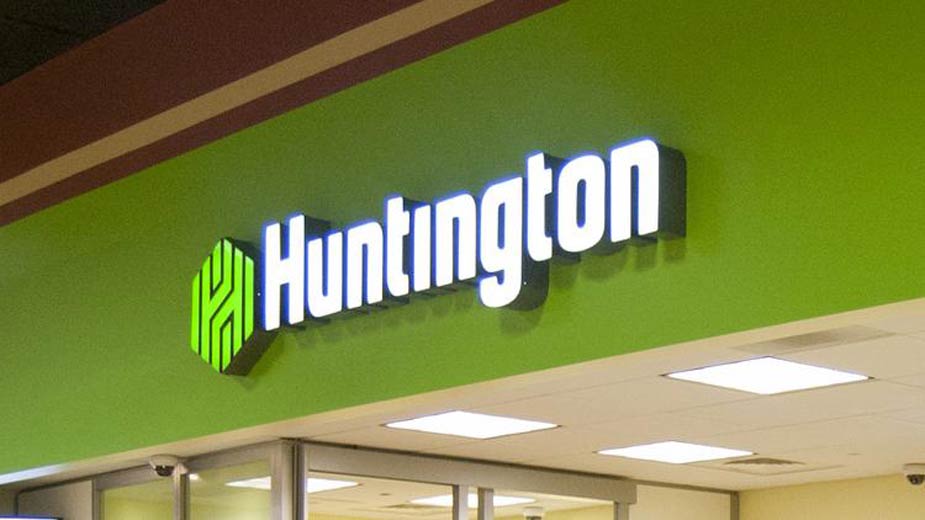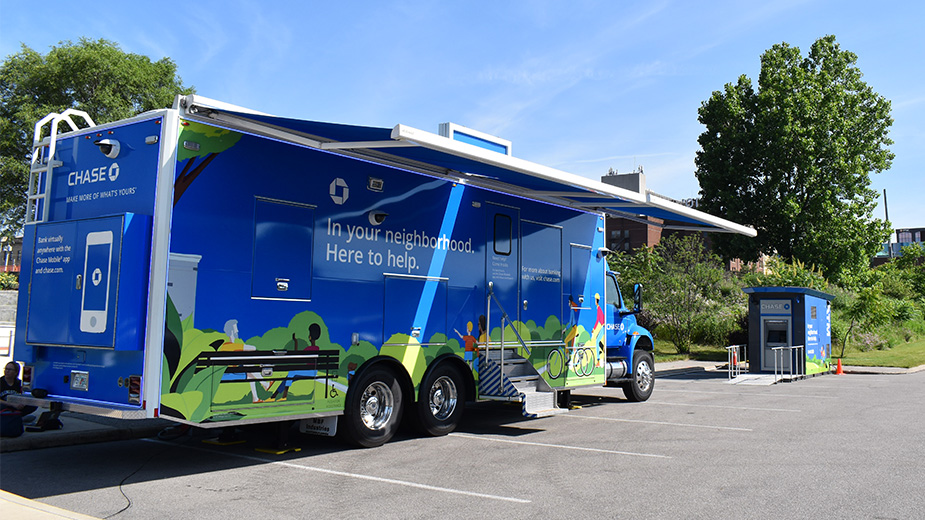With Economy Improving, Banks Make More Loans
YOUNGSTOWN, Ohio — As the local economy continues to improve, commercial bankers are working with small businesses to help them grow by providing credit and financial services to better manage their companies.
“This community is resilient and we came through a recession. As I’m out speaking to customers, they’re very optimistic,” says Daryl Cameron, vice president of commercial banking at Huntington Bank.
The veteran lender points to the steadily improving but slowly growing economy since the Great Recession ended in June 2009.
Other bankers interviewed – Frank Hierro, Mahoning Valley president of Home Savings Bank; Ted Schmidt, Youngstown regional president of PNC Bank; and Tim Shaffer, president of Farmers National Bank’s eastern region – also point to their customers’ restrained optimism.
With businesses owners taking a wait-and-see posture until after the presidential election last November, they have greater confidence about the health of their enterprises and are willing to hire and expand, which in turn benefits the other sectors of the economy.
“It’s a domino effect,” Cameron says. “Lending is like a fuel injector for the economy.”
Before a bank extends a commercial loan, it always reviews the five C’s of credit, one being character. While this measure is the most subjective of the five, commercial bankers still weigh it.
The other four are capacity (ability to repay), capital (owner’s skin in the game), collateral and conditions (what the funding will be used for).
“Past behavior is the best indicator of future behavior,” Cameron says. How promptly a customer has repaid other debts defines a lender’s willingness to extend the credit.
“You could have two sets of financial statements for two businesses and they’re pretty much the same, but one business’ level of risk is substantially different than the other,” Hierro of Home Savings says, “The difference is the owner.”
Lenders examine character, Hierro says, by sitting down with a customer and getting to know him and understanding his business and goals.
“Some people will tell you there will be robots making loan decisions in a few years,” Hierro says, “but they can’t figure out the character of a person.”
Home Savings will issue commercial loans to any company that meets its criteria, from those working out of their homes, small enterprises with one or two employees to those with more than 500 in their workforce, Hierro says.
Only rarely is a startup business in a commercial bank’s loan portfolio because it is yet to establish a track record the bank would use to evaluate creditworthiness.
Most are funded from the owner’s savings, equity in his residence and what he can borrow from family and friends.
“It’s difficult for any financial institution to make a loan to any startup that has no track record,” Hierro says, although Home Savings has extended loans to entrepreneurs who have worked in the same field as their startups.
“If the entrepreneur has been in the industry and has a track record of success, that’s different than someone who comes out of college and has an engineering degree and says, ‘Hey, I want to start an engineering com-pany,’ ” he says.
Home Savings has financed entrepreneurs who have worked for a company and want buy out the owner because the owner is retiring.
“I have never financed someone that wants to start a business that’s never been in business and doesn’t have any experience in that business,” Hierro says.
Among Home Savings’ customers is Chris Jaskiewicz, who purchased Advantage Video Productions from its previous owners April 19. He also owns the business consulting firm HopeStar and before that had 20 years of experience in business management.
Home Savings helped to finance the purchase of Advantage Video and provided a working capital line of credit.
“I went out to a bunch of different banks and Home Savings came back with the best options,” Jaskiewicz says. “They were very responsive and told me exactly what we needed and moved very quickly.”
Advantage Video moved to the Commerce Building in downtown Youngstown from Warren Aug. 14.
Home Savings also helped Ron Taylor, owner of the Edible Arrangements franchise in Boardman, finance a new project: The Simple Greek restaurant.
Home Savings assumed and consolidated his business debt at other banks and gave him a fixed rate of interest, making it easier for Taylor to keep track of his finances and begin his new endeavor, he says.
Banks offer leases, usually for equipment. “You can only delay products and equipment purchases for so long,” says Schmidt of PNC Bank, which has an equipment-finance division.
“If a company hasn’t invested in equipment since 2009, this is the time when they’re starting to wear out and they’re reinvesting,” Schmidt says. “I also see the local economy picking up and companies growing so they need to expand physical plants. We’re seeing more activity on building expansions and they need to have equipment to [put in] that building,” he reports.
Banks offer term loans, usually with a maturity of one to five years. “An equipment loan versus a term loan depends on their [business] strategy on how they want to approach it from a tax perspective,” Schmidt says. “A true tax lease might be better than a term loan.”
PNC has a business credit team with whom Schmidt works closely in asset-based lending.
In asset-based lending, the owner puts up his accounts receivable as collateral so he can finance his cash flow needs such as building inventory or meeting payroll. “It allows us to be more flexible in structure allowing them to have adequate collateral covering borrowings,” Schmidt says.
Farmers Bank extends lines of credit to help businesses that need to manage working capital because customers aren’t prompt in paying what they owe and they must meet payroll, pay rent or acquire more inventory. “Almost every business needs a line of credit or the security of one,” Shaffer says. “Typically when we’re lending, it’s either going to make money or save money for a business.”
Of course, banks do more then make commercial loans. They also help their business customers manage their cash flow.
“I have so many different things to be worried about and it’s nice to know Farmers has it and I can move onto doing something else,” says Jenny Newell, treasurer of Rood Trucking in Mineral Ridge, a company that hauls mail for the U.S. Postal Service.
Pete Noll, vice president and relationship manager of commercial banking at Farmers, works with Newell. “I can call him on vacation to set up a line of credit to help us operate,” says Newell.
Rood Trucking’s business has short deadlines once an order comes in, Newell says, and the company needs to purchase equipment to complete the order in one to two weeks.
“If I need six tractors and 16 trailers I’ll tell [Farmers] the amount of money I think I need and they get it going while I look at what else I need,” she says.
Just as bankers evaluate a customer’s character before accepting him, the customer judges the character of a bank.
“We consider ourselves to be very similar to a lot of the businesses we bank and hope to bank because we too focus on the small business,” Shaffer says.
Copyright 2024 The Business Journal, Youngstown, Ohio.


